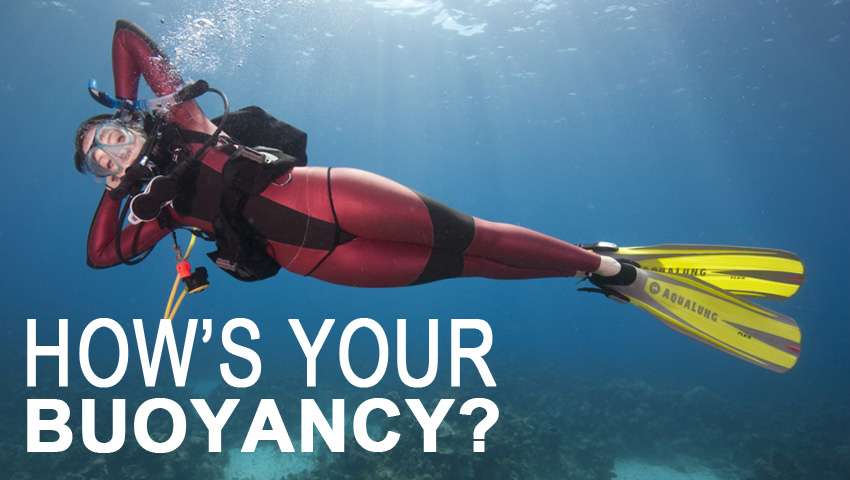There is more to scuba diving than breathing underwater, and admiring & experiencing the beauty of what lies beneath our seas.
Your certification means that you have been trained by a qualified instructor, and has successfully demonstrated mastery of the skills, and completed all theoretical knowledge validation required to be a safe, capable and independent diver to dive in depth and environment in which you are trained for. Your certification carries with you your center and instructor’s name to vouch this fact.
As you dive more, application of these scuba skills will become more natural. Overtime, you will be performing these skills without any conscious effort. But before you can safely dive, you must acquire these skills and perfect these 12 drills by way of proper training.
1. Swimming – This is a very basic but important skill to master. You need to swim to get from point A to point B when in the water. However, the kind of swimming in scuba diving is not as tiring and demanding compared to swimming on the surface without the aid of buoyancy compensation devices to keep you afloat and with fins to easily push you.
2. Equipment familiarization – Scuba diving requires specialized equipment. You need to be familiar with its use, operations, assembly, disassembly and care.
- assembly
- disassembly
- operation
- instrument reading & monitoring
- proper cleaning and care
3. Pre-dive checks – Going through your checklist before jumping in the water can save a dive, and may save lives. Unfortunately, this step can easily be taken for granted. Most problems underwater can be safely avoided if pre-dive checks are done thoroughly.
- buddy check
- proper weighing check
4. Dive planning, Communication, situational & environmental awareness – plan the dive, dive the plan, agree in everything unanimously.
- maximum depths, maximum time, turn around time, separated diver protocols, emergency procedures, etc.
- hand signal
- recall procedure
- dangerous marine life to watch out for
- water movement changes, depth changes
5. Regulator drills – these are skills that you need to do when the regulator is out of your mouth for one reason or another. Without knowing how to safely put your regular back in your mouth, you’d be breathing water instead of air.
- regulator clearing
- regulator recovery
- regulator-snorkel exchange
- free flowing regulator breathing
6. Mask drills – masks can flood and fog underwater, they can be knocked off by a fellow diver, or the strap could snap. Knowing how to put them back and clear them is essential to a more enjoyable dive.
- mask clearing
- mask removal
- no mask breathing
- no mask swims
7. BCD drills – your buoyancy compensation device makes your dives fun, easy and effortless. Know how to use it properly, and knowing what to do when it fails is not only important, it can save you or your buddy life.
- Inflate / deflate
- Power inflator use
- Oral inflator use
- low pressure hose disconnection
8. Entry, Ascent & Descent techniques – getting in and out of the water is not as easy as 1, 2, 3. There are established safe procedures for going down and going up. Various deep water entries are also essential and knowing when to use what technique is important.
- Shore
- Giant Stride
- Backroll
- Controlled seated entry
- 5 point descent
- 5 point ascent
9. Air depletion exercises – what do you do when you run out of air? What you do in this situation will either save you or injure yourself. Master these techniques like your life depended on it!
- Signaling
- Alternate air source use
- Controlled emergency swimming ascents (CESA)
10. Problem solving drills – you can’t talk underwater, you can’t just swim up to the surface everytime you encounter a problem. Although most problems can be avoided during pre-dive checks, equipment failures, cramps and other minor things may happen during the dive. You can safely solve them by practicing these skills.
- weight removal & replacement
- scuba unit removal & replacement
- cramp removal
- tired diver towing
- loose cylinder band fixing
11. Neutral buoyancy & Hovering – by far the most difficult scuba diving skill to master. How you hover is what separates you from a novice diver to an experienced diver. Knowing the principle, understanding the techniques and paying conscious effort can help you hover like a pro.
12. Other Skills – Other skills that, when mastered, make you a better diver and a better buddy.
- Navigation
- Proper kicking
- Skin Diving
- Surface marker buoy (SMB) deployment
Details, procedures, critical steps and the purposes of these skills are discussed to you by your instructor during your in-water training.


Recent Comments